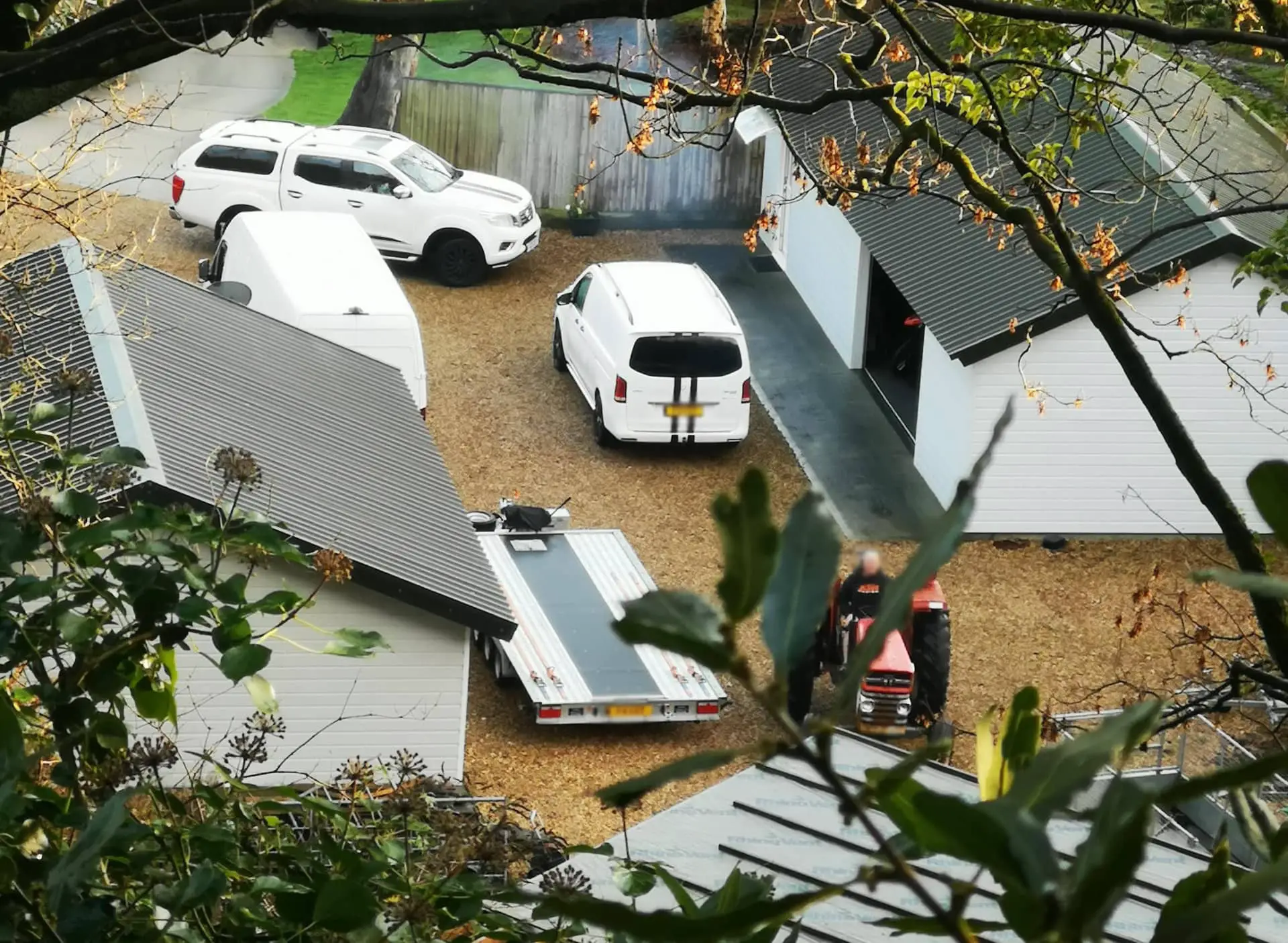A controversial development in Niton — which as reported by News OnTheWight led to the Isle of Wight Council being heavily criticised by a national watchdog — has been refused, despite being partially built.
Retrospective planning permission had been sought by Martin Cotton at Bridge Cottage for the retention and completion of two garages for domestic purposes — one built in 2019 and the other started in 2021.
Decision announced this week
The application was originally submitted in October 2020, revised in April 2021, and finally determined earlier this week by the Isle of Wight Council after the authority carried out investigations.
The site, on the edge of Niton, is part of the Area of Outstanding Natural Beauty (AONB), Site of Special Scientific Interest (SSSI) and Special Area of Conservation (SAC), and council planning officers decided the ‘large garage structures’ would result in a ‘significantly harmful impact’ on the landscape character.
IWC not clear why such large, and numerous, outbuildings were required
Due to the nature of the area, planning policies say there has to be a specific local need for development.
The council, however, said it was not clear why such large, and numerous, outbuildings were required at Bridge Cottage.
For a “significant collection of classic cars and motorbikes”
Asking the planning agent, Norman White, for clarification, officers were told they were to house a significant collection of classic cars and motorbikes.
Officers said they noted the hobby, but the outbuildings would alter the character of the grounds surrounding the cottage from domestic to commercial or industrial use.
Commercial finish to buildings
The design and finish of the garages, they said, appear commercial in nature causing the site to appear out of place, being of ‘excessive size and scale’.
The argument put forward by Mr White for the outbuildings, the council said, did not outweigh the harm they would cause.
Urban and incongruous features
Officer determined the garages would also fail to protect or enhance the special qualities of the AONB, appearing as urban and incongruous features in their surroundings, and result in a significant adverse effect on the SAC and SSSI.
Officers also said there was inadequate information in respect of the impact on protected trees and ground stability and in the absence of sufficient information, the proposed development would be likely to result in harmful impacts to the protected species and habitats.
Delayed decision
When News OnTheWight asked in early February for details of the council’s decision on the application we were told,
“This remains a live application, and the Council will not usually comment on live applications.
“The Council can, however, confirm that the decision is expected to be issued within the next couple of weeks and once issued will be available on its planning Website.”
Nearly five weeks later the decision was posted to the council’s planning portal.
Right to appeal
Mr Cotton is able to appeal the decision made by the council, to the government’s Planning Inspectorate, otherwise the structures may have to come down.
A complaint about the council’s planning considerations of all development at Bridge Cottage was made by a concerned resident to the Local Government and Social Care Ombudsman (LGSCO), leading to an investigation launched at the end of 2020.
Wrong advice given
The watchdog determined the council had committed errors and given wrong advice resulting in more development than might otherwise have occurred.
An LGSCO inspector said the council’s failure to properly assess development as part of protected sites was significant.
They said,
“If we cannot rely on the council as the local planning authority to be aware of the position and importance of protected land, then it is a matter of serious concern … to ensure that it remains undisturbed.”
The Isle of Wight Council has since apologised for the mistakes it made and accepted the ombudsman’s findings.
The authority has agreed to review its procedures, already undertaken officer training and pay £300 in compensation to a charity of the complainant’s choice.
This article is from the BBC’s LDRS (Local Democracy Reporter Service) scheme, which News OnTheWight is taking part in. Some alterations and additions may have been made by OnTheWight. Ed





